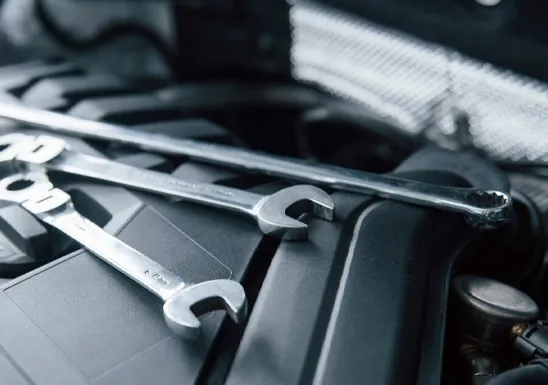നവം . 19, 2024 17:12 Back to list
Understanding the Function and Importance of Oil Seals in Machinery Applications
Understanding Oil Seals The Essential Components of Machinery
Oil seals, often referred to as shaft seals or lip seals, play a crucial role in the functionality and longevity of various machinery and automotive components. These innovative seals prevent the leakage of lubricants and contaminants, ensuring that mechanical systems operate efficiently. In this article, we will explore the importance of oil seals, their construction, types, and applications, particularly focusing on the TCN (Thermoplastic Copolymer Nitrile) oil seals.
The Importance of Oil Seals
In any machine that has moving parts—whether it be an engine, a pump, or a gearbox—there exists a need for lubrication to minimize friction and wear. However, the presence of moving parts creates challenges in sealing off lubricants from the external environment. This is where oil seals come into play. They not only retain the lubricants within the components but also keep dirt, dust, and other contaminants out, thus extending the life of the machinery.
Oil seals primarily serve two functions static sealing and dynamic sealing. Static sealing refers to the seal's ability to prevent fluid leakage around stationary components, while dynamic sealing refers to its performance around moving parts, such as shafts. A well-designed oil seal will effectively handle the changes in pressure and temperature encountered in a given application.
Construction of Oil Seals
Oil seals are composed of several key components, including the outer casing, sealing lip, and spring. The outer casing is usually made from materials such as metal or rubber, providing structural integrity and facilitating easy installation. The sealing lip, which is often made from elastomeric materials, makes contact with the shaft and creates a barrier against leakage. The spring, typically found on the inside of the sealing lip, applies constant pressure to the lip against the shaft, ensuring a tight seal that accounts for wear over time.
The choice of material is crucial to the oil seal's performance. TCN, or Thermoplastic Copolymer Nitrile, is one such material gaining prominence in recent years. TCN offers excellent oil resistance, thermal stability, and mechanical performance. Additionally, it can operate effectively in a wide temperature range, making it suitable for various demanding applications.
Types of Oil Seals
Oil seals can be categorized based on their design and application
. The most common types includeoil seal tcn

1. Single Lip Seals These seals have one sealing lip and are typically used in low-pressure applications.
2. Double Lip Seals Featuring two sealing lips, these provide an extra layer of protection against leakage and are used in more demanding environments.
3. Radial Seals These seals are designed to contain the lubricant at the interface between a rotating shaft and a stationary housing.
4. Axial Seals These provide sealing at interfaces that move in a linear fashion and are utilized in various machinery.
Applications of Oil Seals
Oil seals are ubiquitous in mechanical engineering and are implemented across diverse industries. In automotive applications, they are found in engines, transmissions, and wheel hubs. In industrial machinery, oil seals are crucial in pumps, compressors, and conveyors. Their ability to withstand high pressures and temperatures makes them indispensable in these environments.
The TCN oil seal has become particularly popular in modern applications. With the growing demand for higher performance and more reliable sealing solutions, TCN seals are increasingly preferred due to their superior mechanical properties and resilience in harsh operating conditions. They provide an effective sealing solution that meets the rigorous demands of both automotive and industrial applications.
Conclusion
Oil seals, especially those made from advanced materials like TCN, are vital components in the machinery that powers our world. By ensuring that lubricants are retained and contaminants are kept out, these seals play a significant role in enhancing the operational efficiency and lifespan of various mechanical systems. As technology continues to evolve, so too will the designs and applications of oil seals, ensuring that they remain an essential part of modern engineering and automotive industries.
-
Understanding Oil Seals and Their Role in Machinery Efficiency
NewsApr.08,2025
-
The Importance of Seals in Agricultural and Hydraulic Systems
NewsApr.08,2025
-
Essential Guide to Seal Kits for Efficient Machinery Maintenance
NewsApr.08,2025
-
Choosing the Right TCV Oil Seal for Your Machinery
NewsApr.08,2025
-
Choosing the Right Hydraulic Oil Seals for Reliable Performance
NewsApr.08,2025
-
A Comprehensive Guide to Oil Seals and Their Applications
NewsApr.08,2025
-
The Importance of High-Quality Oil Seals in Industrial Applications
NewsMar.26,2025
Products categories
















